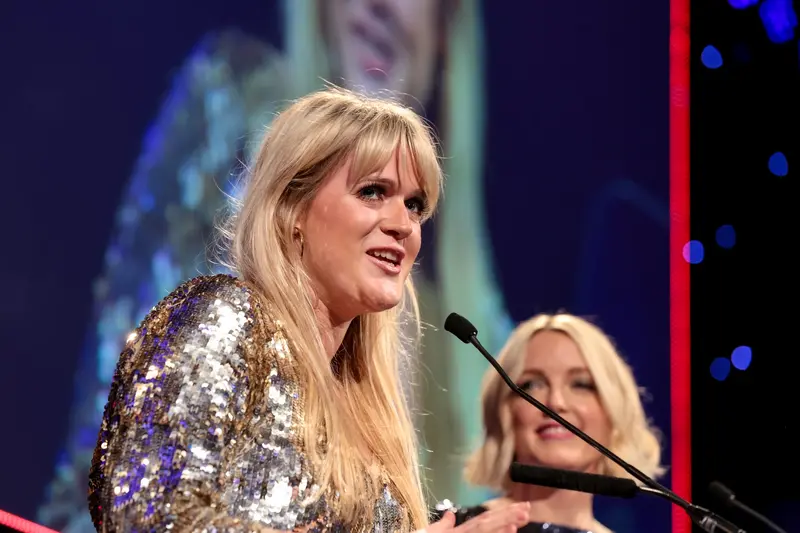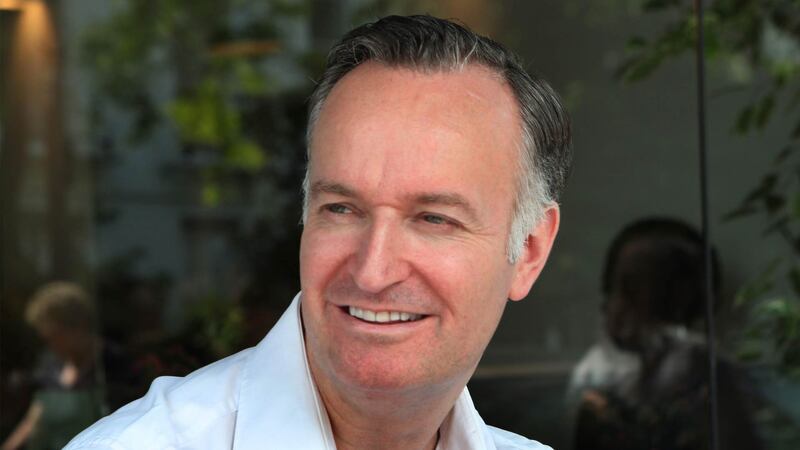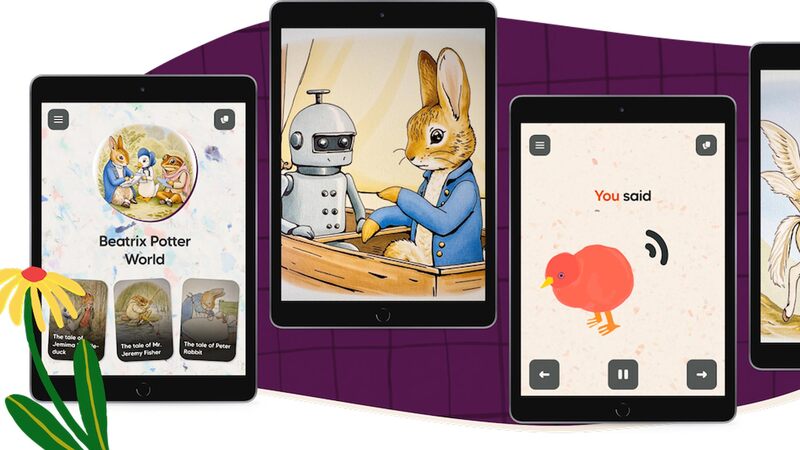You are viewing your 1 free article this month. Login to read more articles.
Trade wary of audio monopoly after buyouts as Dohle warns on streaming
The potential for the streaming model to monopolise audiobook distribution poses a real threat to authors’ livelihoods, the trade has been warned, following Spotify’s purchase of Findaway and Storytel’s acquisition of Audiobooks.com.
Both firms operate on a pooled income basis, whereby rights-holders are given a share of revenue generated from subscribers based on listening time, which can lead to a rapid growth in listener numbers at the same time as a diminution in artist income. However, both Spotify and Storytel have been effectively locked out of the US and UK markets owing to the reluctance of the countries’ big publishers to give them deals.
Markus Dohle, c.e.o. of Penguin Random House, has unreservedly said subscription models are detrimental to author income, and that publishers have a wider responsibility to support retail. Speaking to The Bookseller editor Philip Jones at the magazine’s FutureBook Conference today (19th November), Dohle will say: “When it comes to subscription, I am convinced that in the long run it is not good for author income, it is not good for retail.
“Look at these investments this week: big bucks flowing into the United States publishing industry, Storytel and Spotify entering the scene. We have a very clear view on this: it’s not good for authors, it’s not good for retail, it’s not good at creating the future of books and long-form reading for generations to come, and we continue to apply that to our strategy. We are talking to agents and authors about this and more and more people agree with us. We will see how this unfolds, whether readers at large will adopt those kinds of models. The future will show [the verdict], ultimately the reader will decide.”
Sophia MacAskill, podcasts and audio associate agent at Curtis Brown, said publishers’ stance on royalties needs to change as streaming becomes dominant. “Despite the boom in audio sales over the last year, publishers remain fixed in their view of digital royalties, which will only be compounded when the calibrations used to calculate number of listens, and ergo royalties, through streaming is added on top.”
In practice, this means should a customer only listen to part of the audiobook, the author of the title stands to lose out on their full royalty. Some platforms push membership options to consumers that see author revenues getting pooled, a move MacAskill thinks will result in “ever diminishing shares” for writers.
“There is always the question of monopolisation within the industry,” MacAskill added. “Yes, the introduction of new retailers may suggest more choice across the board for consumers, publishers and authors. But it is the potential monopolisation of streaming as a distribution model, which sits behind the [audio retailers], that poses the real threat to authors’ livelihoods.”
Also advocating a shake-up to the author royalty system is trade body the Society of Authors. Chief executive Nicola Solomon says she “remains concerned at the very low returns authors get from any form of subscription model, including Audible, and the lack of transparency in calculating royalties on many systems”.
Across the board
The issue of fair artist remuneration is an ongoing cross-industry discussion, spearheaded by the music sector. In July 2021, following a report led by the Department for Digital, Culture, Media & Sport, Julian Knight MP called for a “complete reset of streaming that enshrines in law [an artist’s] right to a fair share of the earnings”.
The report Economics of Music Streaming found comprehensive reform of legislation and further regulation is needed, not only to redress the balance for songwriters, performers and composers, but to investigate the “fundamental problems” within the music industry. The report also called on the Competition & Markets Authority to investigate whether competition in the market is being distorted, a level of “scrutiny” agents are saying is needed in the publishing industry.
“Agents welcome all the ways in which readers and listeners can share authors’ work, but with caveats in the midst of this boom about quality of production, communication and transparency with authors, and fair remuneration,” said Isobel Dixon, m.d. and head of books at the Blake Friedmann Literary Agency and president of the Association of Authors’ Agents.
“In a rapidly developing field, all this needs to be scrutinised very carefully, so the entry of new big players into the UK market and how that develops is something we will watch very carefully. Authors should not be the losers in an audio rush where publishers try to insist on rights they are finding they don’t always have the capacity or expertise to properly exploit at the time of publication.
“With rights licensing, I believe strongly in not just ‘use it (in a timely fashion) or lose it’, but also ‘use it well’. The rise in quantity of sales and ‘listens’ does not always equate with value for the creators, and there are serious concerns about earnings for authors in streaming models. These are fast-moving times, to be navigated with care on all sides.”
Protecting authors
Literary agent Kate Nash has already sought advice to “protect and promote” her authors’ work since Spotify launched its first audiobook originals at the start of this year. “Streaming models for audiobooks must ensure that authors are properly compensated and that copyrights and moral rights, where these are held by the author, remain protected. The last thing we would like to see is that this becomes a genie out of a bottle, ‘democratising’ content at the expense of the content creators,” she said.
Across the pond, Michele Cobb, executive director of the Audio Publishers Association, thinks the major acquisitions will result in a “shake up” to the subscription models various platforms currently offer. “Anything that exposes more people to the format is ultimately going to be a fantastic thing for the audio industry,” she said.
“These companies are going to be coming up with potentially different models—like a credit model, it shakes up the business a bit—but each publisher is going to make their own decision. Now that there are more types of content within [the audio space], it’s going to be interesting to see how podcasts and audio are going to be available. With changes in technology and consumer interest, we don’t know what we may see in the near future. It’s exciting.”
Natalie Jerome, agent at Curtis Brown, is hopeful that the increased competition will “break down monoculture” and welcome underrepresented authors and creatives to the audio landscape, but she also voiced concern about authors getting their dues. “[The subscription model] was a concern for the music industry with Apple, in that it hits the artist. [For us] it will hit the author, so I think we do have some work to do on that, so that we have authors paid fairly for their content,” she said. “But at the same time, it’s such a difficult balance because of the potential to reach so many more people through the subscriber model—it’s really tough. Especially if you’re from an ‘underrepresented background’ and you have a situation where your story will be listened to everywhere or not at all. The trade-off there is it is through a subscriber model and your earnings are potentially capped.
“If there are other players who are coming into the space, like Spotify, to open up routes to market for stories and storytellers, that can only be a good thing, as long as [authors are] paid fairly. The other piece in all of this is talent not being paid fairly, which we know is an issue. So as long as it goes hand-in-hand with fair pay, I have no problem with there being increased competition in this space and more routes [for writers to] get their stories out there.”
The audio giants
As for Spotify and Storytel, the race to own the audio space and take another slice of the Apple pie is on. “[Spotify has] taken a big bite out of Apple’s podcast market share in quite a short period of time, so this acquisition seems to signal that they’ll be attempting to do the same in the audiobook space,” said Dominic Gribben, audio publisher at Hachette UK. “The audiobook landscape has changed quite a lot over the past few years and there are more ways than ever to listen, but to date Findaway and Audiobooks.com have been relatively small players in the UK market. My hope is that these changes in ownership will supercharge both platforms and encourage greater competition in the UK audiobook market, creating more opportunities for publishers and more choice for consumers.”


















